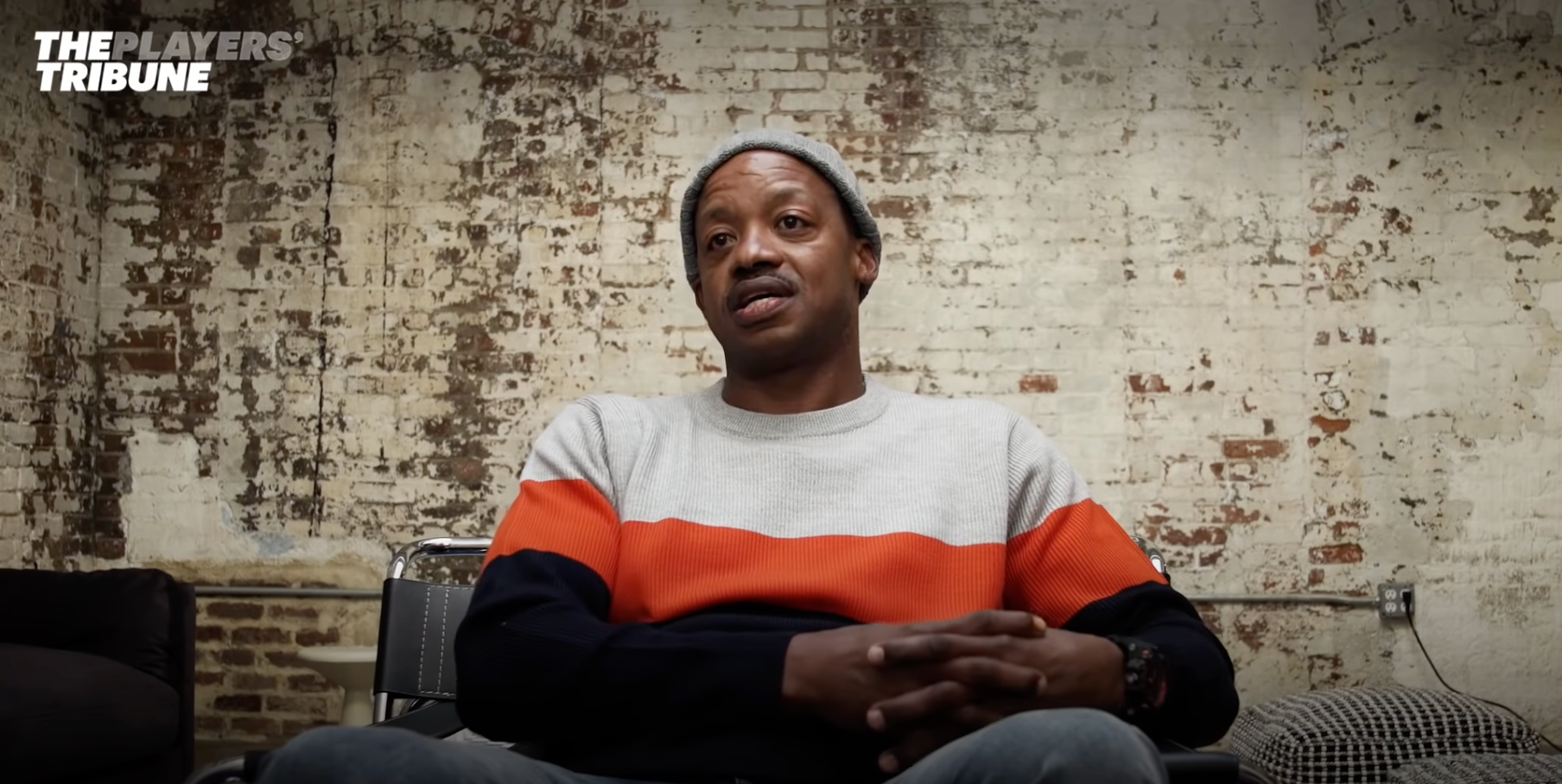Since his playing days ended back in 2008, there have been plenty of times I’ve worried about the health and wellbeing of former NBA star Steve Francis.
In a past life, he was an explosive scorer who punished his opponents with his freak athleticism. But in the years since, he’s had multiple run-ins with the law and his battle with alcoholism is well-documented.
Suggested Reading
“What happened to Steve Francis? I was drinking heavily is what happened,” he told the Players’ Tribune in 2018. “In the span of a few years I lost basketball, I lost my whole identity, and I lost my stepfather, who committed suicide.”
It’s safe to say that the former Houston Rockets star has been through his fair share of trials and tribulations. However, the 44-year-old wants others to learn from the mistakes he made along the way. And in his latest essay for the Players’ Tribune, entitled A Letter to Young Black Men, he bares his soul and opens up about his mental health journey.
“About six years ago, I started struggling with my mental health,” he writes. “At the time, I was dealing with so much stress and anxiety that all I wanted to do was just drink to shut my brain off. I didn’t want to talk to anybody. I didn’t want to think. I just wanted to sit back with the Juice and Goose, in my own world.
“I just wanted to be numb. That’s the best way I can describe it. Pretty soon, I was drinking like every day. My career was over, and I didn’t know what was coming next, and I was just lost, man.”
The Maryland product then goes on to reveal how basketball became his coping mechanism at an early age, as he did his best to survive in an environment brimming with violence and despair.
“Basketball was my escape,” he writes. “All around me, it could be chaos. But when I had the ball in my hands, I was in my own world. For 22 years, hooping was my self-medication. That was my ticket out of Maple Avenue. Out of poverty. Out of being in survival mode 24/7.”
The NBA did provide him with the type of life most of us can only dream of, but Francis also admits that the trappings of fame made it much easier to simply mask his pain instead of addressing it head-on.
“Looking back on it, I was definitely ignoring a lot of pain,” he writes. “Once you get on the NBA roller coaster, there’s no brakes. I never processed a lot of the trauma that I’d experienced when I was growing up. The darkest day of my life was when I buried my mother at 18 years old, right before I went off to junior college. Cancer. She was my best friend in the whole world. When I say her name to this day—I get a little bit emotional, because that scar is still so raw.”
He then admits that he buried that pain of losing his mother so deep that it didn’t resurface until his NBA career was winding down a decade later. That’s when his drinking problem began.
“You just want to numb the pain,” he writes. “So yeah, I was drinking heavy at that time, trying to erase all those memories. You’ve probably seen the pictures of me in the club. The Internet was on my ass, man. They were Photoshoppin’ your boy.”
Thankfully, Franchise is in a much better place now, and it was former WNBA star Chamique Holdsclaw who helped him get on the right path.
“I was able to open up to her, because I knew she’d understand me,” he writes. “Getting help was really easy. It’s not some big thing. I literally just looked up a number on Google, and I started talking to a counselor. It was that simple.”
He continued, “If you would’ve told me at 17 years old when I was out on the corner that I’d be talking about my mental health, I would’ve laughed at you. But it was the best move I’ve ever made. Just being able to talk with someone about all the things I’ve been through instead of self-medicating and trying to bury everything…it changed my life.”
As a result, the 10-year NBA vet hasn’t had a drink in two years and encourages others, especially Black men, to prioritize their own mental health.
“I’ve dealt with depression. I’ve dealt with anxiety. I’ve tried to solve my problems with the bottle. But thank God, I reached out and got some help. Thank God, I’m straight,” he writes. “If I can do it, then you can, too.”
I commend Francis for being so open about his mental health journey; he digs into those challenges even deeper in an accompanying interview with the Players’ Tribune, which you can watch below.
Straight From 
Sign up for our free daily newsletter.


